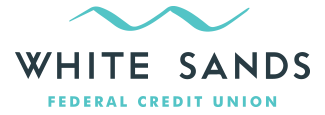Retirement planning for 20-somethings

If you’re in your 20s, the topic of retirement brings a wave of anxiety and boredom. Who has time to think about saving for retirement with massive student loans to pay? And retirement is y-e-a-r-s away.
It’s time to re-frame the discussion of retirement planning for 20-somethings. It’s not just about money when you’re old. It’s about taking control now and using time and money to build your own better future.
It’s about freedom
How about financial freedom? That’s something everyone wants. The goal is the same no matter what you call it: income to live the way you want without having to (actively) work for it.
There are a few simple keys to get there that apply to anyone of any generation.
Start saving something right now
When you’re young, time is on your side, and compounding interest is a superpower. Compounding interest is interest earned on saved money plus the interest already earned on those savings. In other words, interest gains more interest, even without adding more money.
Have you heard of the million-dollar retirement plan? Many finance sites have written about the idea that you can save at least a million dollars if you start in your 20s. The method depends on saving early, compound growth, investing in the market, and a long runway of years.
Here’s how one possibility works:
- Start contributing $300 a month at age 22
- Assume a conservative rate of return (averages range from 7-12%)
- Let it do its thing over 45 years
- At 67, you’d end up with $1,000,000+ in your retirement account
Search for retirement calculators and investing calculators. Have a little fun and play with the numbers which can also help you set goals. Switch up the number of years, the rate of return and the amount saved to see how this could work for you.
Get Free Money
The hands-down easiest way to save for retirement is through your job’s 401(k), 403(b) or TSP (Thrift Savings Plan). Your employer handles it all for you after you decide how much per check you want to contribute. It’s deducted pre-tax and deposited into the account for you.
The “free money” part comes in with your employer match. A typical match is 50 cents or one dollar for every dollar you contribute up to a set percent of your pre-tax pay. You should always contribute enough to get the full matching percentage. In other words, if your company kicks in 50 cents for every dollar you save up to 5%, save at least 5%.
If that goal is too tight, start with 1 or 2% then go up 1% every year. Through raises and promotions, work up to save between 10 to 15%, or hit the max contribution limit for your 401(k), 403(b) or TSP.
Automate saving for financial freedom
Don’t have an employer match? Don’t let that stop you! Take advantage of automatic contributions through every paycheck. You’ll still get the pre-tax benefits and make saving habit-forming.
Another option for automatic saving is a Traditional IRA or Roth IRA. Learn the difference between Traditional and Roth IRAs.
FIRE up and retire early
Want to retire at 40? The FIRE movement (Financial Independence, Retire Early) is gaining popularity.
The old picture of retirement was a black and white world of work and no work. Young adults in the FIRE movement are redefining retirement for themselves in different ways.
Some go for full early retirement. Others want to leave the demands and hours of a full-time job but continue using their skills on a smaller scale. They pursue passions and control how much work they want to do.
Saving enough to retire by 35 or 40 involves careful planning and discipline. If you’ve got dependents, multiply the degree of difficulty.
And it’s hard work. It goes without saying that the higher your income, the more you can save, so your career will need to be your priority for a while.
Don’t neglect your emergency fund
Everyone needs an emergency fund. You already know why. Because life is unpredictable. Whether it’s an unexpected layoff or your dog gets sick, you need quick access to funds when life gets real.
There are two reasons this is part of retirement planning:
1) to stash money aside for when you need it now, and
2) remove any temptation of dipping into your future self’s money when you need cash. $1,000 now could cost you a lot more later in life.
Even if you think you don’t have anything left to save, start small. Automate something from your paycheck to a savings account every pay period.
The ultimate goal is 6-9 months of take-home pay. If that seems like a mountain to climb, start by focusing on building your savings to one paycheck’s worth, then two, then two months…
“You’re the Average of the 5 People You Spend the Most Time With” – Jim Rohn
When you’ve got a specific interest, you like being around others who share it, yes? It’s no different with financial savvy. It’s easier to get support, share information and be around others who are trying to do the same thing as you – get financial freedom.
Warren Buffett and LeBron James keep company with financially smart people, including each other. It’s as much a strategy as having multiple income streams or eliminating debt. Find a person or online group interested in the same goals. Being able to talk about money helps you get better at money.
Don’t forget to include White Sands FCU as a resource. Our blog is full of financial educational articles. Try our online FAQ, and our local staff, who want you to succeed because your life goals are our life goals.
The “experience” generation has disrupted the workplace and now retirement is also known as financial freedom. There won’t be one model for everyone to follow. That means you can’t approach financial freedom the same way as previous generations.
The keys to funding your freedom lie in starting early, getting your employer match, automating saving, having an emergency fund, and spending time around people with the same goals.
It doesn’t matter if you start small as long as you start now.
Contact Us
Call Center:
(575) 647-4500 or
Hours of Operation:
Monday thru Friday, 8 am-5 pm
Mailing Address:
P.O. Box 99
Las Cruces, NM 88004
Routing & Transit # 312276470
Federally Insured by NCUA
Your savings federally insured to at least $250,000 and backed by the full faith and credit of the U.S. Government. National Credit Union Administration, a U.S. Government Agency.
Equal Housing Lender
We do business in accordance with the Federal Fair Housing Law and the Equal Credit Opportunity Act.
White Sands Federal Credit Union is committed to providing a website that is accessible to the widest possible audience in accordance with the WCAG 2.0 standards and guidelines. We are actively working to increase accessibility and usability of our website to everyone. If you are using a screen reader or other assistive technology and are encountering problems using this website, please contact us at 575-647-4500 or 1-800-658-9933. Please provide the location of the inaccessible information. All products and services available on this website are available at all White Sands Credit Union branch locations.

